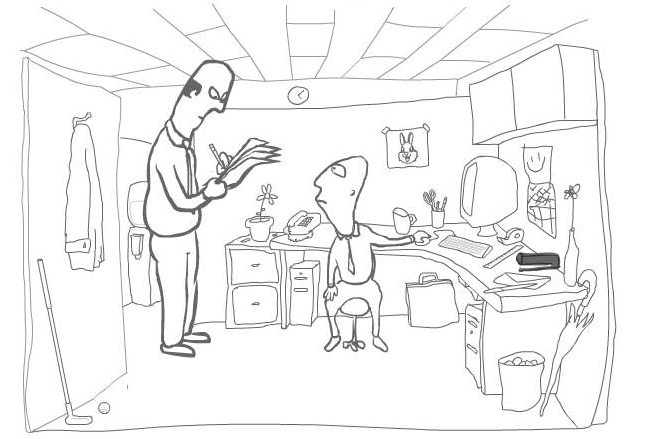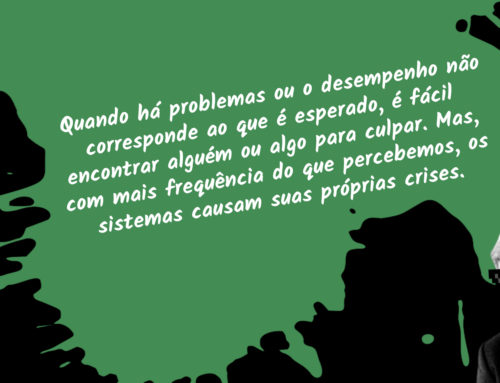I believe most people have a boss inside them. I am not excluding myself from this group. This is explained by the way we are grown. Our culture is full of them and we learn very early about the superior-subordinate relationship.
I remember a scene from my childhood. A friend, then 9, had just received his first opportunity to be a boss. He had been chosen to be the leader of a pack of wolves. He didn’t think twice and decided to taste that new instituted power. He asked a schoolboy (7 year old!) to lift a 2kg stone above his head. The order was followed and a smile of evil satisfaction appeared on my friend’s face. The game stopped there and the next order was to put the stone back down.
We have a boss inside us, but not all of us are psychopaths.
Even having the capacity to control ourselves, it is easy to remember that power corrupts. Just look at the headlines of the world’s newspapers and see what is common between them.
At this point, you may be thinking: I do not want to be an all-powerful boss. I want to be a manager! A leader! An enlightened despot, a benevolent dictator. Ok, let’s examine the characteristics, found in top-selling books in stores, that are expected from a “manager”:
- Inspiring leader
- Process Facilitator
- Conflict mediator
- Talent Developer
- Cheerleader
- Server Leader
- Expert in the technical area
- Wise in decision making
- Expert communicator
- Strategic Planner
- Professional and personal coach
- Results-driven
- Visionary
Okay, no one can be all this at the same time. Maybe that’s why this story of being a boss, even though we’ve learned to enjoy that since our childhood, make us a living proof of Peter’s Principle, which says:
In a hierarchical system, every employee tends to be promoted up until he or she reaches his or her level of incompetence.
Very well. So maybe you want to kill the boss inside you. Whether you realize the impossibility of people being good bosses (practical reason) or because you feel that no one should accumulate so much power (ethical motivation). What matters is that there is a desire to end this persona.
Not only that. Maybe you do not want to submit to a boss, and the same reasons apply.
Here is my recipe, but beware! I do not offer guarantees, I can only speak from my experience.
There is no sequence of what needs to be done. These are 3 strategies that can be followed in parallel.
- Think. Stop and think hard about your motives and values. If your desire to kill your boss is rooted only in practical matters, the burial may take a long time to happen. Self-knowledge is also key for you to understand where your little bosses are hiding and what principles, values and habits are conflicting. Yes, we humans are full of incoherences.
- Study. About how organizations can exist without such a role that centralizes so much power. You can read books, watch videos on the internet, consult people, take part in workshops and look for other sources. Just be careful with universities, because if there are so many bosses there, you won’t find any references.
- Practice. It is not just studying and thinking that you will build new habits and change mental models. You need to find a group of people or organization where you can learn in practice how to work and live without a boss. Yes, it takes time. But living with a boss also takes time, except that we started learning that earlier.
It is a simple recipe that can be followed by anyone.
Oh, and do not think that something so strong in our culture will not resurface when we are relaxed.
There are zombie bosses. I’ve seen them… inside me.






Leave A Comment